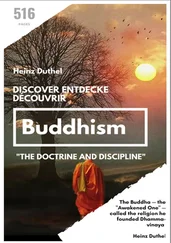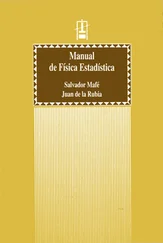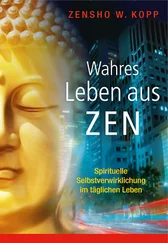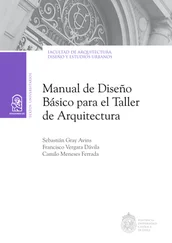Teitaro Suzuki - Manual of Zen Buddhism
Здесь есть возможность читать онлайн «Teitaro Suzuki - Manual of Zen Buddhism» весь текст электронной книги совершенно бесплатно (целиком полную версию без сокращений). В некоторых случаях можно слушать аудио, скачать через торрент в формате fb2 и присутствует краткое содержание. Жанр: Религиоведение, Религия, Руководства, на английском языке. Описание произведения, (предисловие) а так же отзывы посетителей доступны на портале библиотеки ЛибКат.
- Название:Manual of Zen Buddhism
- Автор:
- Жанр:
- Год:неизвестен
- ISBN:нет данных
- Рейтинг книги:3 / 5. Голосов: 1
-
Избранное:Добавить в избранное
- Отзывы:
-
Ваша оценка:
- 60
- 1
- 2
- 3
- 4
- 5
Manual of Zen Buddhism: краткое содержание, описание и аннотация
Предлагаем к чтению аннотацию, описание, краткое содержание или предисловие (зависит от того, что написал сам автор книги «Manual of Zen Buddhism»). Если вы не нашли необходимую информацию о книге — напишите в комментариях, мы постараемся отыскать её.
Manual of Zen Buddhism — читать онлайн бесплатно полную книгу (весь текст) целиком
Ниже представлен текст книги, разбитый по страницам. Система сохранения места последней прочитанной страницы, позволяет с удобством читать онлайн бесплатно книгу «Manual of Zen Buddhism», без необходимости каждый раз заново искать на чём Вы остановились. Поставьте закладку, и сможете в любой момент перейти на страницу, на которой закончили чтение.
Интервал:
Закладка:
Or if drifting in the vast ocean a man is about to be swallowed up by the Nagas, fishes, or evil beings, let his thought dwell on the power of Kwannon, and the waves will not drown him.
Or if from the top of Mount Sumeru a man is hurled down by an enemy, let his thought dwell on the power of Kwannon, and he will stay in the air like the sun.
Or if pursued by wicked persons a man falls on the Vajra mountain, let his thought dwell on the power of Kwannon, and not a hair on him will be injured.
Or if surrounded by an army of enemies a man is threatened by them, each of whom with a sword in hand is about to injure him, let his thought dwell on the power of Kwannon, and the enemies will cherish a compassionate heart.
Or if persecuted by a tyrant a man is about to end his life at the place of execution, let his thought dwell on the power of Kwannon, and the executioner's sword will at once be broken to pieces.
Or if a man should find himself imprisoned and enchained with his hands and feet manacled and fettered, let his thought dwell on the power of Kwannon, and he will be released from the shackles.
If harm is going to be done to a man by means of magic or poisonous herbs, let his thought dwell on the power of Kwannon, and the curse will revert to the people from whom it started.
Or if a man should encounter a party of Rakshasas, or Nagas exhaling poison, or evil spirits, let his thought dwell on the power of Kwannon, and no harm will ever be done to him.
If a man is surrounded by wild beasts whose sharp teeth and claws are to be dreaded, let his thought dwell on the power of Kwannon, and they will quickly run away in all directions.
If a man is attacked by venomous snakes and scorpions breathing poisonous gas ready to scorch him, let his thought dwell on the power of Kwannon, and they will all turn away from him shrieking.
When thunder-clouds burst with flashes of lightning, a storm of hailstones or pouring rain in torrents, let his thought dwell on the power of Kwannon and the storm will in no time clear away.
If a calamity falls on beings and they are tortured with interminable pain, [let them resort to] Kwannon who, being endowed with the mysterious power of wisdom, will save them from all troubles in the world.
Kwannon is the possessor of miraculous powers, widely disciplined in knowledge and skilful means, and in all the lands of the ten quarters there is not a place where he does not manifest himself.
The various evil paths of existence such as hells, evil spirits, beastly creatures, etc., and the pains arising from birth, old age, disease, and death—they will all by degrees be annihilated.
[Kwannon is] the one who views the world in truth, free from defilement, with knowledge extending far, and full of love and compassion; he is to be always prayed to and always adored.
He is a pure, spotless light and, like the sun, dispels all darkness with wisdom, and also subverts the disastrous effects of wind and fire; his all-illuminating light fills the world.
His body of love he keeps under control like thunder that shakes the world; his thought of compassion resembles a great mass of cloud from which a rain of the Dharma comes down like nectar, destroying the flames of evil passions.
If a man is held at court with a case against him, or if he is intimidated at a military camp, let his thought dwell on the power of Kwannon, and all his enemies will beat retreat.
[His is] a most exquisite voice, a voice that surveys the World, the voice of Brahma, the voice of the ocean-one that excels all the voices of the world. For this reason let our thought always dwell on him.
Let us never cherish thoughts of doubt about Kwanzeon who is thoroughly pure and holy and is really a refuge and protector in trouble, grief, death, and disaster.
He is in possession of all merits, regards all things with an eye of compassion, and like the ocean holds in himself an inestimable mass of virtues. For this reason he is to be adored.
At that time Jiji Bosatsu [5]rose from his seat, and standing before the Buddha said: World-honoured One, they are truly furnished with no small amount of merit who listen to his Chapter on Kwanzeon Bosatsu, in which his life of perfect activities is described—the life of one who endowed with miraculous powers, manifests himself in all directions.
When the Buddha finished preaching this Chapter on the All-sided One all the people in the assembly, amounting to 84,000 in number, cherished the desire for the supreme enlightenment with which there is nothing to compare.
III. THE KONGOKYO OR DIAMOND SUTRA [1]
1. Thus I have heard.
At one time the Buddha stayed at Anathapindaka's Garden in the grove of Jeta in the kingdom of Sravasti; he was together with 1,250 great Bhikshus. When the meal time came the World-honoured One put on his cloak and, holding his bowl, entered the great city of Sravasti, where he begged for food. Having finished his begging from door to door, he came back to his own place, and took his meal.
When this was done, he put away his cloak and bowl, washed his feet, spread his seat, and sat down.
2. Then the Venerable Subhuti, who was among the assembly, rose from his seat, bared his right shoulder, set his right knee on the ground, and, respectfully folding his hands, addressed the Buddha thus:
“It is wonderful, World-honoured One, that the Tathagata thinks so much of all the Bodhisattvas and instructs them so well. World-honoured One, in case good men and good women ever raise the desire for the Supreme Enlightenment, how would they abide in it? how would they keep their thoughts under control?”
The Buddha said: “Well said, indeed, O Subhuti! As you say, the Tathagata thinks very much of all the Bodhisattvas, and so instructs them well. But now listen attentively and I will tell you. In case good men and good women raise the desire for the Supreme Enlightenment, they should thus abide in it, they should thus keep their thoughts under control.”
“So be it, World-honoured One, I wish to listen to You.”
3. The Buddha said to Subhuti: “All the Bodhisattva-Mahasattvas should thus keep their thoughts under control. All kinds of beings such as the egg-born, the womb-born, the moisture-born, the miraculously-born, those with form, those without form, those with consciousness, those without consciousness, those with no-consciousness, and those without no-consciousness—they are all led by me to enter Nirvana that leaves nothing behind and to attain final emancipation. Though thus beings immeasurable, innumerable, and unlimited are emancipated, there are in reality no beings that are ever emancipated. Why, Subhuti? If a Bodhisattva retains the thought of an ego, a person, a being, or a soul, he is no more a Bodhisattva.
4. “Again, Subhuti, when a Bodhisattva practises charity he should not be cherishing any idea, that is to say, he is not to cherish the idea of a form when practising charity, nor is he to cherish the idea of a sound, an odour, a touch, or a quality. [2]Subhuti, a Bodhisattva should thus practise charity without cherishing any idea of form. Why? When a Bodhisattva practises charity without cherishing any idea of form, his merit will be beyond conception. Subhuti, what do you think? Can you have the conception of space extending eastward?“
“No, World-honoured One, I cannot.”
“Subhuti, can you have the conception of space extending towards the south, or west, or north, or above, or below?”
“No, World-honoured One, I cannot.”
“Subhuti, so it is with the merit of a Bodhisattva who practises charity without cherishing any idea of form; it is beyond conception. Subhuti, a Bodhisattva should cherish only that which is taught to him.
5. “Subhuti, what do you think? Is the Tathagata to be recognized after a body-form?”
Читать дальшеИнтервал:
Закладка:
Похожие книги на «Manual of Zen Buddhism»
Представляем Вашему вниманию похожие книги на «Manual of Zen Buddhism» списком для выбора. Мы отобрали схожую по названию и смыслу литературу в надежде предоставить читателям больше вариантов отыскать новые, интересные, ещё непрочитанные произведения.
Обсуждение, отзывы о книге «Manual of Zen Buddhism» и просто собственные мнения читателей. Оставьте ваши комментарии, напишите, что Вы думаете о произведении, его смысле или главных героях. Укажите что конкретно понравилось, а что нет, и почему Вы так считаете.








